
Ajay Goel, PhD, AGAF, discusses study findings that could help in earlier detection of lymph node metastases and colorectal cancer (CRC).

Ajay Goel, PhD, AGAF, discusses study findings that could help in earlier detection of lymph node metastases and colorectal cancer (CRC).

Ajay Goel, PhD, AGAF, explains the significance of 2 new studies that found that early-onset colorectal cancer (EOCRC) and recurrence in CRC could both be predicted using new blood and tissue tests.

Abstracts presented at Digestive Disease Week 2022 showed that RBX2660, an investigational microbiota-based drug, was more likely to reduce the recurrence of Clostridioides difficile infection (CDI) compared with placebo.

At Digestive Disease Week 2022, John M. DeWitt, MD, professor of medicine, Indiana University Health, explains his findings on the diagnosis and management of achalasia in 2022 and how the COVID-19 pandemic affected these trends.

During a State-of-the-Art Lecture at Digestive Disease Week 2022, Jessica L. Mellinger, MD, MSc, explained how the COVID-19 pandemic has driven increases in rates of alcohol use and associated liver disease, as well as what can be done at the clinic, societal, and policy levels to address these trends.
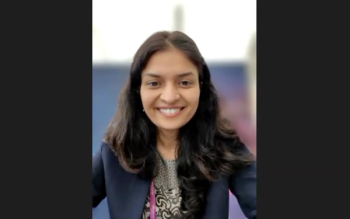
At Digestive Disease Week 2022, Sravanthi Parasa, MD, gastroenterologist at Swedish Gastroenterology, talks about how artificial intelligence (AI) is used in gastroenterology and what challenges it may pose for clinicians.

Investigational microbiota-based live therapeutic RBX2660 was found to be safe and effective at reducing Clostridioides difficile (C difficile) recurrence, said Paul Feuerstadt, MD, assistant clinical professor at Yale University School of Medicine, gastroenterologist at PACT Gastroenterology Center, at Digestive Disease Week 2022.
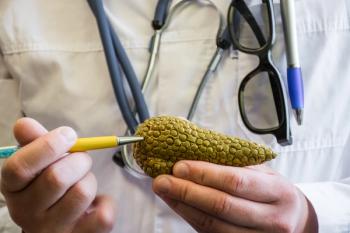
Evidence shows that weight loss achieved through bariatric and endoscopic surgery can help treat and reverse nonalcoholic fatty liver disease (NAFLD), but optimal procedure selection and timing vary by patient factors, according to speakers at Digestive Disease Week 2022.

Outcomes were worse for patients hospitalized once for Clostridioides difficile infection compared with alternative reasons for hospitalization, but the risk of adverse outcomes did not seem to increase with recurrent admissions for C difficile, explained Preethi Venkat, MD, second-year internal medicine resident at University of California, San Diego, at Digestive Disease Week 2022.
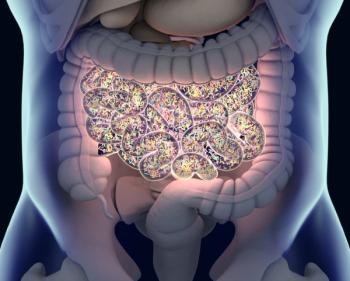
A pair of posters presented at Digestive Disease Week 2022 showed the efficacy of an investigational biotherapeutic in preventing Clostridioides difficile infection recurrence and restoring the microbiome.

Speakers at Digestive Disease Week 2022 presented research on how health disparities and socioeconomic factors can contribute to changes in the gut microbiome that have implications for cancer risk, immune health, and overall well-being.
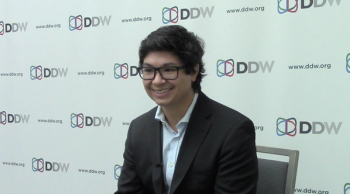
Because symptoms are similar to those of gastroesophageal reflux disease, achalasia is often misdiagnosed, explained Eric Low, MD, MPH, gastroenterology fellow at University of California, San Diego at Digestive Disease Week 2022.

The accumulation of screening and treatment disparities are contributing to colorectal cancer incidence and mortality disparities, said Folasade (Fola) May, MD, PhD, gastroenterologist, health services researcher at University of California, Los Angeles, at Digestive Disease Week 2022.

As artificial intelligence (AI) technology in the gastrointestinal field continues to advance, speakers at Digestive Disease Week 2022 discussed how these tools can be put into practice to improve efficiency, reduce physician burnout, and reap cost savings.
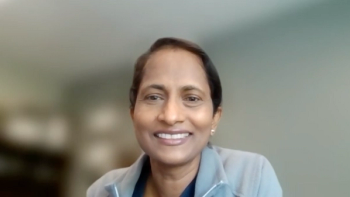
Latha Alaparthi, MD, gastroenterologist at Gastroenterology Center of Connecticut, talks about lessons she has learned from being a woman in a medical leadership position and what she hopes to teach others at the Women in GI Luncheon at Digestive Disease Week (DDW) 2022.
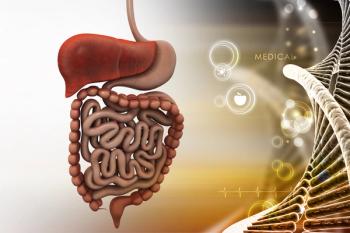
Digestive Disease Week (DDW) 2022, held virtually and in San Diego, California, from May 21 to 24, will feature research and presentations exploring new ways to prevent and treat digestive diseases.

Findings from 2 Phase III trials of plecanatide were presented at Digestive Disease Week, held May 6-9 in Chicago, Illinois.

At Digestive Disease Week 2017, held May 6-9 in Chicago, Illinois, researchers presented their work to develop a capsule scope that can harness the power of magnetics and robotics to autonomously explore the colon.

A lack of diversity in study groups is a common problem in clinical trials, including those researching gastrointestinal (GI) diseases. Speakers at Digestive Disease Week 2017, held May 6-9 in Chicago, discussed the roots of this issue and what they have found to address it.

Hospitalized patients who are obese are more likely to be readmitted and have longer and costlier inpatient stays, but tend to have lower mortality rates, according to new research presented at Digestive Disease Week 2017, held May 6-9 in Chicago, Illinois.

As the number of mobile health applications continues to skyrocket, a group of researchers set out to determine whether a smartphone app could prevent readmissions for patients released from the hospital after gastrointestinal (GI) surgery. The findings from the pilot study of their mHEALS app were presented at Digestive Disease Week 2017, which took place May 6-9 in Chicago.

At a session during Digestive Disease Week 2017, held May 6-9 in Chicago, speakers highlighted some new approaches to managing obesity that are now approved by the FDA.

At Digestive Disease Week 2017, held May 6-9 in Chicago, researchers presented their findings from a trial of a text messaging intervention to encourage weight loss and liver health in patients with non-alcoholic fatty liver disease (NAFLD).

According to the findings of a new study, endoscopic sleeve gastroplasty could present an effective alternative to more invasive surgical weight loss interventions. The research was presented at Digestive Disease Week 2017, held May 6-9 in Chicago.

At a session during Digestive Disease Week 2017, held in Chicago from May 6-9, speakers discussed the ongoing efforts to define, measure, and improve the quality of care for patients with inflammatory bowel disease (IBD).

Experts gathered to discuss policy changes and their impact on digestive research and patient care during the “Gastroenterology in the Age of Trump” session presented by the American Gastroenterological Association at Digestive Disease Week 2017, held May 6-9 in Chicago, Illinois.

259 Prospect Plains Rd, Bldg H
Cranbury, NJ 08512
© 2025 MJH Life Sciences®
All rights reserved.
